Watch out, Apple, HTC is coming for you
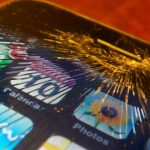
HTC is like a child with shiny new toy taken from HP and used against neighborhood bully Apple. Enjoying its December 2011 patent purchase, yesterday the Taiwanese smartphone manufacturer filed a counterclaim in a Florida court, accusing Apple of infringing on two patents. HTC wants to keep momentum after a win against Apple in a UK court, invalidated the famous "slide to unlock" patent.
Apple has targeted major competitors -- HTC, Motorola Mobility and Samsung primarily -- with patent infringement lawsuits. While counterclaims are common, HTC has so far mostly been on the losing end against Apple. HTC purchased two patents -- US Patent No. 7,120,684, titled "Installation of network services in an embedded network server", and 7,571,221, named "Method and system for central management of a computer network". Both patents are claimed to be infringed by the fruit company.
Apple threatens retailers: Stop selling Samsung Galaxy devices now or else

It's bad enough that Apple uses patents to bully competitors. Now the company threatens retail partners, demanding they remove two Samsung devices from store shelves. Apparently, court orders aren't good enough for Apple, which also ignores one of them.
Apple, through its army of lawyers, has sent a letter to an unknown number of retailers and carriers selling the Galaxy Tab 10.1 tablet and Galaxy Nexus smartphone. Last month a US court issued temporary injunctions against both devices, but temporarily lifted the one against Galaxy Nexus.
Android tops the smartphone market once again
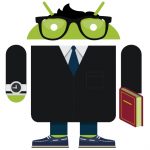
If you’re a U.S. resident and want to buy a phone today, there’s a one-in-two chance you’ll get a smartphone.
According to a recent report from Nielsen, 54.9 percent of U.S. phone subscribers owned a smartphone as of June 2012. By comparison, in February 2012, smartphone adoption was at 49.7 percent, which can only mean one thing: feature phones are slowly going away and smartphones are here to stay.
Apple flip-flops on EPEAT, says it will work hard to meet new IEEE green standards
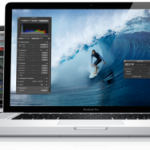
Earlier this week, consumer electronics superstar Apple announced none of its products would be included in the EPEAT federal registry of green computer products.
Friday, Apple reversed its decision and instead said it would work to meet the soon-to-be-changed IEEE 1680.1 standard that is the basis for EPEAT's ratings.
I won’t boycott Apple
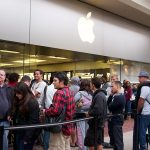
My colleague Joe Wilcox certainly created a storm when he declared his independence from Apple on July 4th. Annoyed by what he saw as the fruit company’s aggressive patent bullying, which he believes "thwarts competition and takes away consumer choice", he sold his remaining Apple devices, and now refuses to touch anything the company makes.
He’s not alone. The #boycottapple hashtag has gained a fair amount of traction on Google+, Reddit and Twitter and many, many words have been written on the subject. Read Joe’s articles if you need more background.
The things you must know about Apple becoming 'less green'
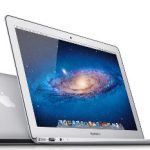
This week, the Green Electronics Council announced that Apple will no longer submit any of its products to EPEAT, the Electronic Product Environmental Assessment Tool, for environmental rating, removing all of its products from the standardized green ratings system used by all US federal agencies.
Naturally, the subject of Apple rejecting compliance with anyone would generate a lot of discussion. However, there are some major pieces of information that get lost in the shuffle of news and the rush toward instant partisanship and polarization to sell a story. Below, we'll look at some of the basics of the story without dipping too far into the horribly overplayed "Apple vs. The World" trope that populates the Web.
Tall iPod nano will be this year's model

Apple consistently reinvents iPod nano, rolling out new versions of its tiny player annually since 2005, with the exception of last year. It’s not too much of a stretch to assume we’ll see an updated version this year, out in time for Christmas, and according to Japanese blog Macotakara, it will be a return to the earlier, taller form factor, but with some notable differences.
The blog, which cites a "reliable Chinese source", reports that the new device will be three-quarters the height of the fifth-generation model, with a rectangular (presumably touchscreen) display, a home button like the one found on iPhone and iPad, and a "dedicated new iTunes service", suggesting it may have a working version of iOS onboard.
Macotakara also states that the clip that appears on the back of the current square design (for use during physical activity) will be abandoned, making the new 7th-gen nano much thinner.
Should you boycott Apple?
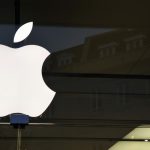
What's right for me might not be for you.
On July 4th, I declared independence from Apple, weeks after pledging to boycott the company's products. The independence story is among my post popular posts (based on pageviews), and it's most-Liked and most-commented. I inadvertently tapped into some surprisingly strong emotions about the fruit-logo company and unmeaningly joined the boycott Apple movement. Looks like I'm not the only person mad about recent patent bullying, although other boycotters add more complaints.
Three things you REALLY need to know about iPad mini

The Apple iPad is the best-selling tablet by quite some margin, but with increasing competition from the likes of Google and Microsoft, its dominance could be under threat. Although the company could (and likely will) make some minor improvements to the iPad at some point -- making it thinner, boosting the camera, and finding a way to reduce its core temperature, for example -- it needs to come up with new variations if it wants to stay on top.
That means going large and producing a ‘MacPad’, which would essentially be a touchscreen, keyboard-less version of the Macbook Air (bringing it into direct competition with Microsoft Surface), or going small, and finally introducing the much rumored iPad mini.
Samsung isn't cool enough to copy Apple

Today, UK Judge Colin Birss confirms what Apple fans have claimed for years: Samsung isn't "cool enough" to copy the trendy fruit-logo company. But the result is opposite their meaning about copying badly. Birss ruled that Samsung's Galaxy Tab family of tablets do not imitate iPad, meaning violate Apple's registered design -- they're not "cool enough" and "do not have the same understated and extreme simplicity which is possessed by the Apple design".
The court gave the win to Samsung by stating that Galaxy Tab 10.1 is different enough to the iPad, being thinner and with a detailed back cover. Apple spokesman Alan Hely doesn't agree, saying: "This kind of blatant copying is wrong and, as we’ve said many times before, we need to protect Apple’s intellectual property". This is what happens when you lose and can't do it with dignity.
Techdom's Apple aura problem
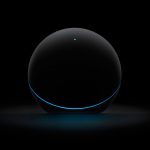
Last week, Google unveiled its first consumer electronics device -- Nexus Q. If Steve Jobs were still alive and had announced the same product as "one more thing", there would be headlines everywhere that Apple had done it again -- that the fruit-logo company raised the bar and demonstrated its brilliance at design and innovation.
Nexus Q is a remarkable product. The sphere changes fundamental concepts about entertainment. Content is in the cloud. Smartphones control the device, and they're also where users interact with content (e.g., small versus big screen). Users can share, say, music on the same device -- not one but anyone is in control -- and all without wonky, local digital rights management. Nexus Q attaches to any modern TV or sound system, and because content is in the cloud it's available anywhere the device goes. The sphere is beautifully constructed, too. But Jobs didn't unveil the sphere, someone whose name you don't even recognize did. As such, Nexus Q is largely ignored because stigma is attached: Apple didn't invent it.
Chinese companies take a bite out of Apple
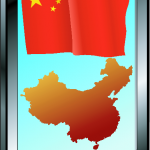
Today, China is a wonderful place for corporations around the world. The financial crisis laws don’t necessarily apply to China as they do to other places like Europe or the United States. So it comes natural for companies to invest more and more to expand into the Chinese market.
Since the end of 2011, China has surpassed the United States as the world"s largest phone market, which is great news for handset manufacturers. Smartphones also play an interesting role, as developers get interested in writing applications for the Chinese market, which would bring revenues to corporations like Apple and Google through their online stores, App Store and Google Play.
Could Apple be planning its own answer to Google Glass?

Apple, like all big tech companies, files patents for lots of things. Some are used in products it plans to make, but others are just ideas that may or may not ever come to fruition. For this reason you can never read too much into new patents, but that doesn’t mean we shouldn’t sit up and pay at least some attention to the news that Apple has been granted a broad patent for a head-mounted wearable computing device that sounds rather similar to Google Glass.
While the news might suggest that Apple has simply ripped off Google’s innovation, the truth is the patent was actually filed in October 2006 but just granted now.
So much for Apple innovation: There will be 100 LTE phones available before the next iPhone

The high speed network technology known as LTE has built up a staggering momentum in the last year, despite Apple's iconic iPhone being late to the party.
There has been a good deal of speculation over whether the next generation of iPhone will include 4G LTE network support. The iPhone originally entered the mobile phone market on a 2G signal when networks were still upgrading and expanding their 3G coverage. The same is happening now with 4G, but it's gotten to the point where LTE has matured and the time seems right for Apple to adopt the technology.
Apple's App Store flub causes dozens of iOS and Mac apps to crash
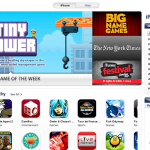
A bug in Apple's App Store updating mechanism caused some recently downloaded apps to crash on startup. The issue affects several popular apps including Instapaper and Angry Birds Space, and made Fourth of July stressful for many developers.
The issue appears to have cropped up after changes in Apple's app distribution. The glitch not only affects iOS apps but also those obtained through the Mac App Store, leading some to believe the issue may reside in Apple's FairPlay DRM mechanism.
© 1998-2025 BetaNews, Inc. All Rights Reserved. Privacy Policy - Cookie Policy.